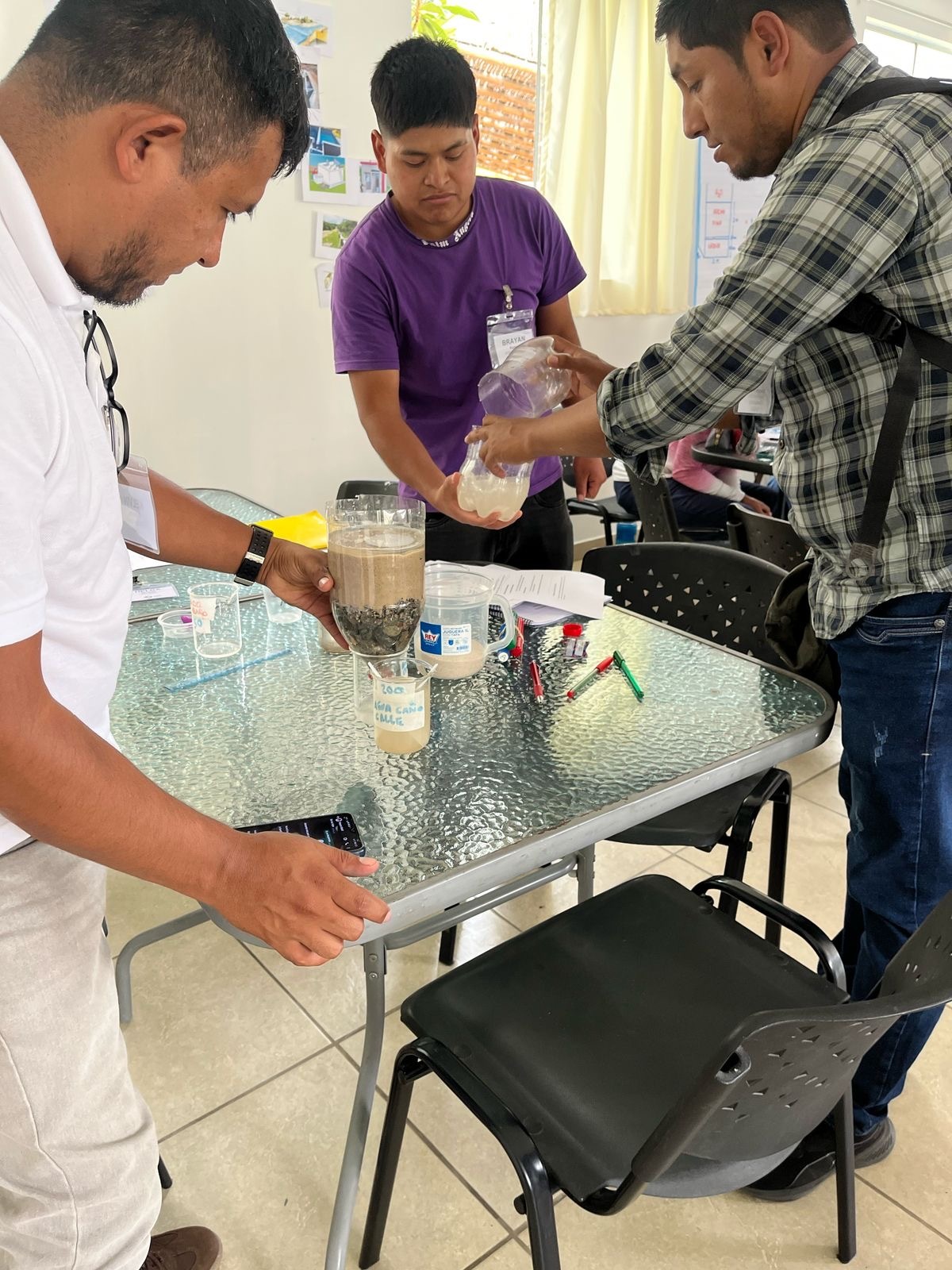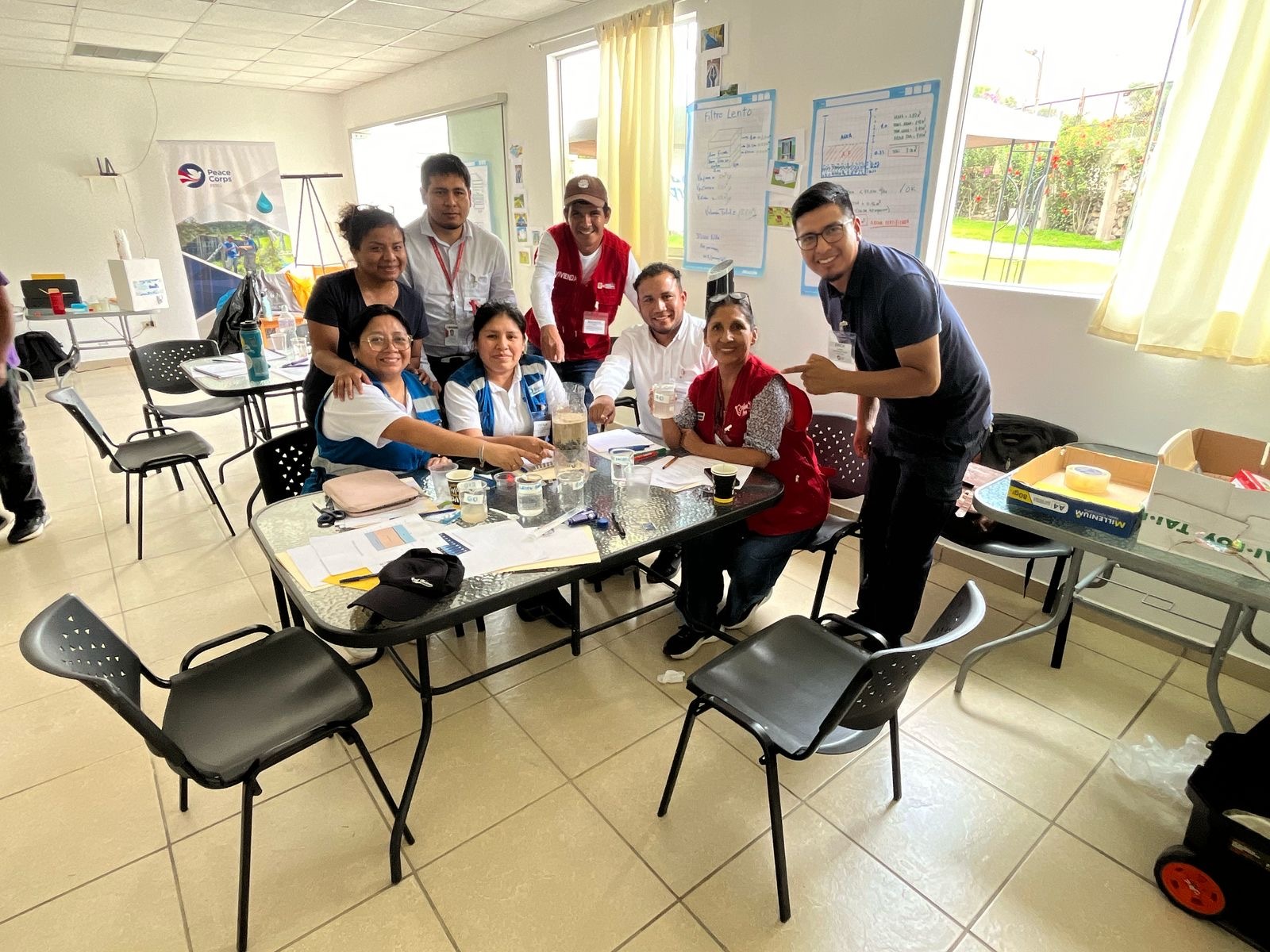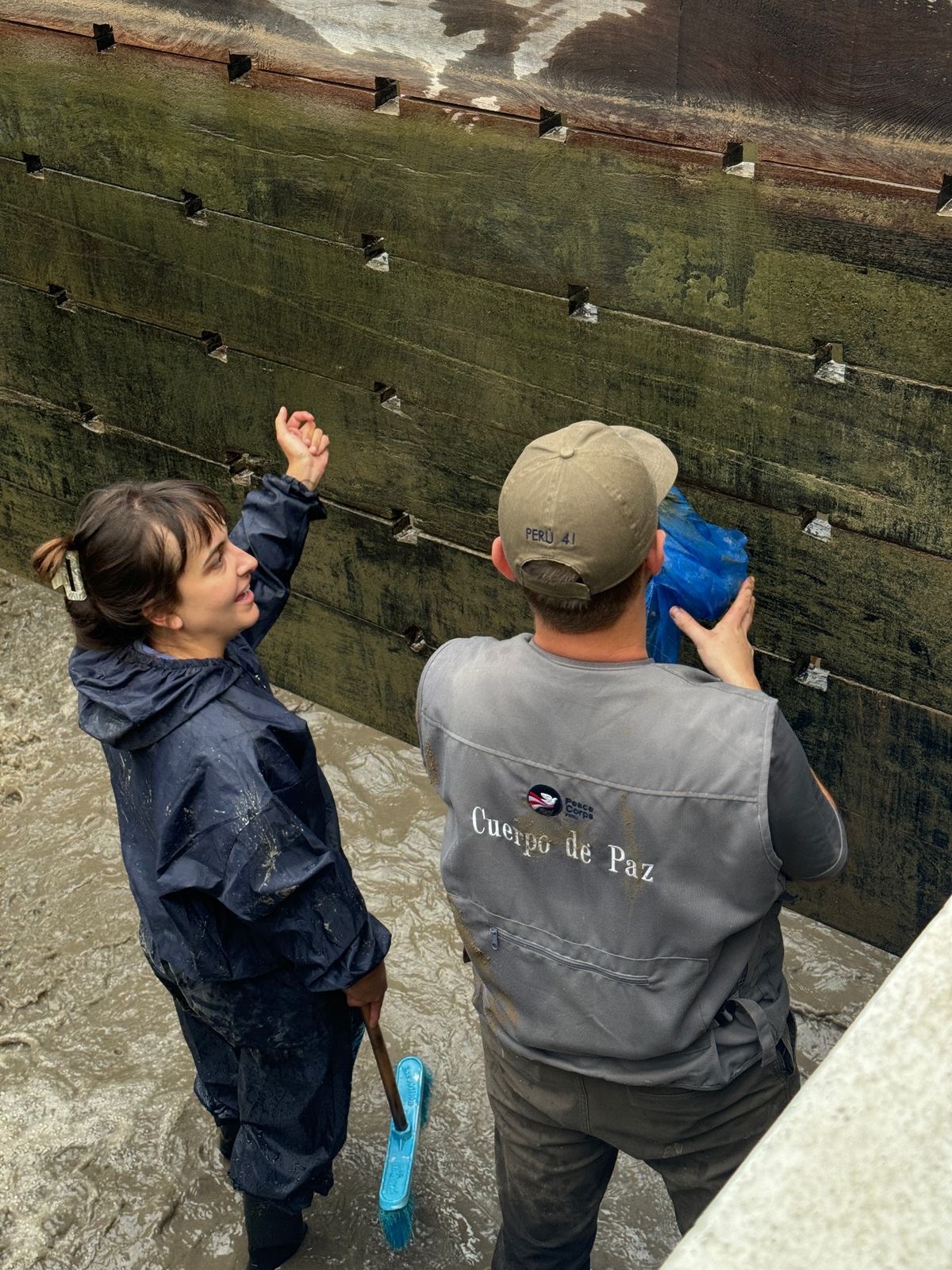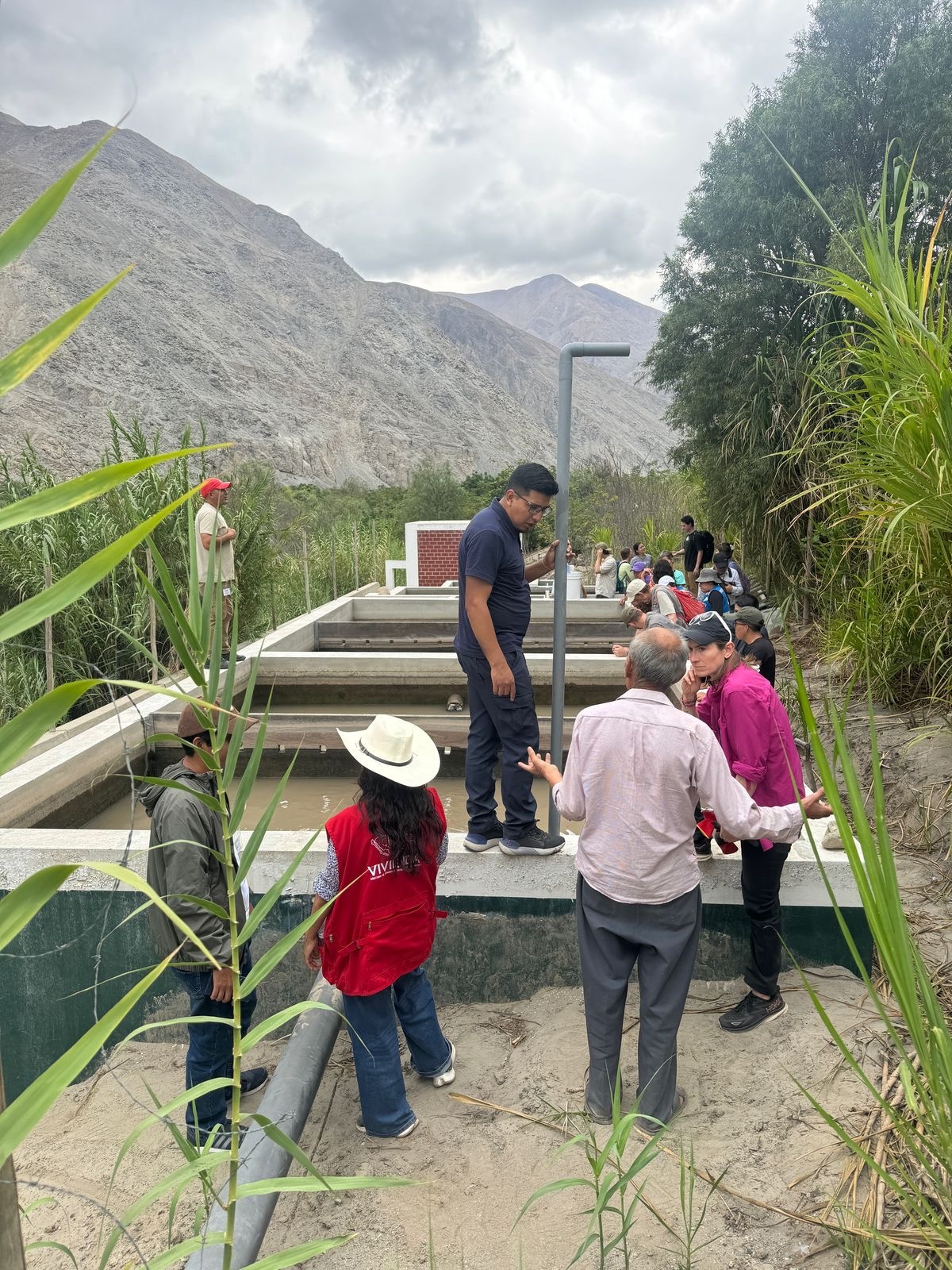Strengthening Water and Sanitation in Peru: EWB-USA and Peace Corps Peru Join Forces
On February 17, 2025, Engineers Without Borders USA (EWB-USA) and Peace Corps Peru took a major step forward in their partnership to improve water, sanitation, and hygiene (WASH) infrastructure in rural Peru. Together, they hosted an intensive eight-hour hands-on training workshop aimed at tackling one of the most pressing issues in rural Peru regions: the long-term operation and maintenance (O&M) of potable water treatment systems.
This training is a part of EWB-USA’s Purposeful Partnership Model (PPM), a strategy launched in Peru in 2023 to strengthen collaboration with local organizations and scale community-driven infrastructure development. By working alongside local NGOs, Peace Corps Peru, and future partners, EWB-USA is not only implementing critical infrastructure projects but also ensuring they remain functional and sustainable for years to come.
Hands-On Learning for Lasting Impact
The February training brought together 10 Peace Corps Peru WASH program volunteers and 19 government representatives from the municipal and national levels for a full-day, interactive experience. Participants engaged in a series of practical hands-on activities covering crucial topics such as essential water treatment theory, system maintenance, and troubleshooting issues in treatment systems. Live maintenance demonstrations at a nearby treatment facility provided real-world context, ensuring that community leaders, government officials, and Peace Corps WASH volunteers walked away with actionable skills to improve rural water infrastructure at the community level.
“We are very grateful for this valuable support that has allowed our volunteers, local partners, and regional allies to understand in a practical and simple way the operation and maintenance of Drinking Water Treatment Plants in rural areas” - Nelly Najera Water and Sanitation Program Manager at Peace Corps Peru
To create this training, Peace Corps staff and volunteers shared information about 8 priority water treatment systems that were representative of many of the small-scale treatment facilities utilizing surface water sources (rivers, streams, canals, and springs) in the region. Based on the information and challenges provided, a team of 4 EWB-USA volunteers and EWB-USA staff developed the training using insights from completed EWB projects in Peru and global best practices. The training was delivered by a former PC Peru WASH volunteer and current EWB-USA volunteer, Angeline. This approach aligns with EWB-USA’s broader Purposeful Partnership Model (or PPM for short) initiative, which seeks to integrate local knowledge and expertise into project design while fostering long-term relationships with key stakeholders.
"This training had very good activities that permitted for the exchange of experience and knowledge between participants"
A Growing Partnership for Greater Impact
EWB-USA and Peace Corps Peru’s collaboration is just beginning. By working together to improve sustainable water access and sanitation solutions, the two organizations are setting the stage for a broader, more sustainable impact. The Purposeful Partnership Model ensures that investments in WASH infrastructure are not just short-term fixes but are embedded in a larger strategy for national-scale change.
With additional investment, EWB-USA aims to expand this model, piloting real-world climate adaptation strategies and hosting strategic workshops with government entities, international agencies, and NGO partners. By strengthening partnerships and enhancing local capacity, this initiative will shape a more resilient and community-driven approach to infrastructure development in Peru.
By working together, EWB-USA and Peace Corps Peru are going beyond infrastructure—they’re empowering communities and local leaders to take control of their own resource management, like water systems, securing a healthier and more sustainable future for thousands of Peruvians powered by partnerships.
 |
 |
 |
 |
